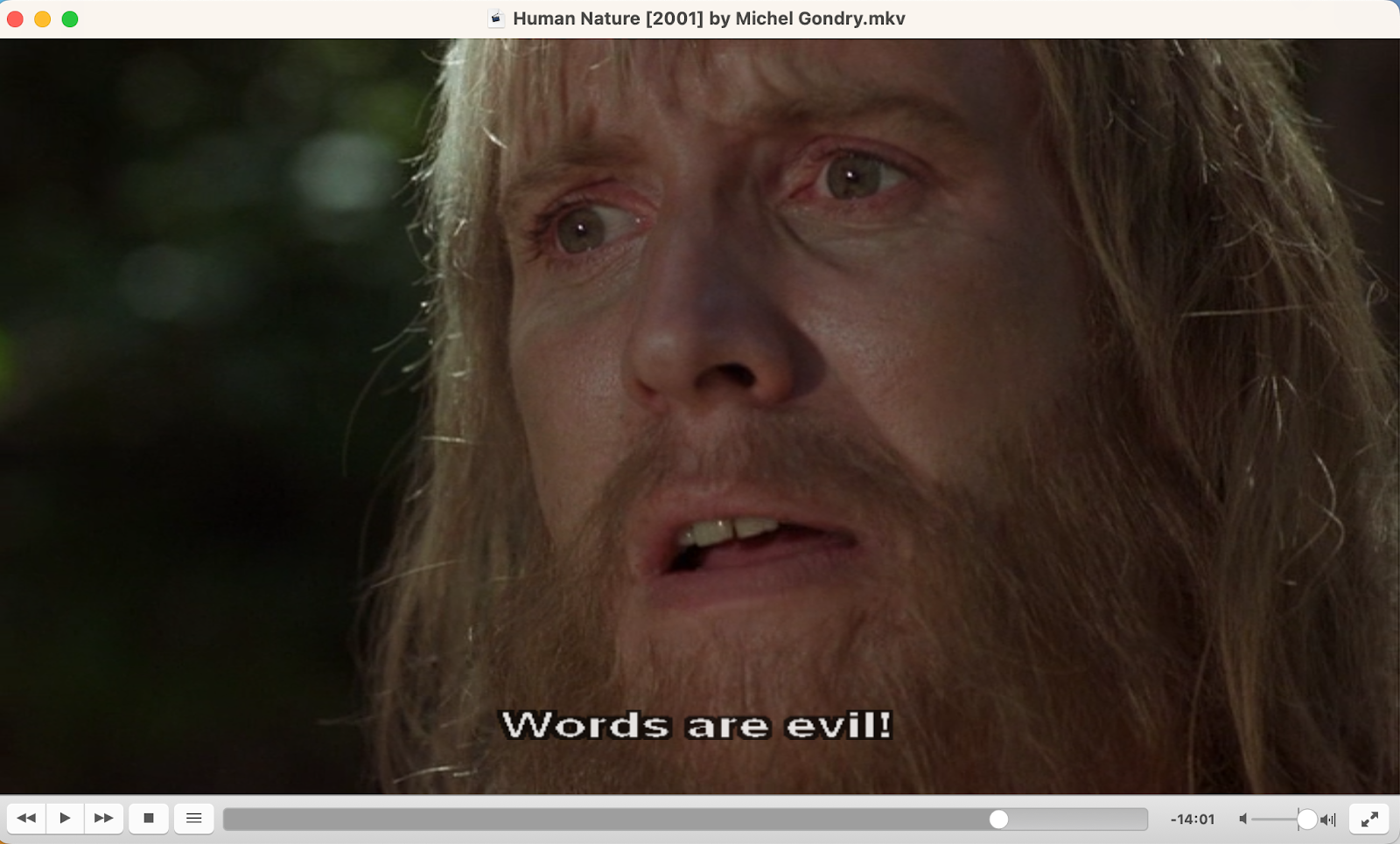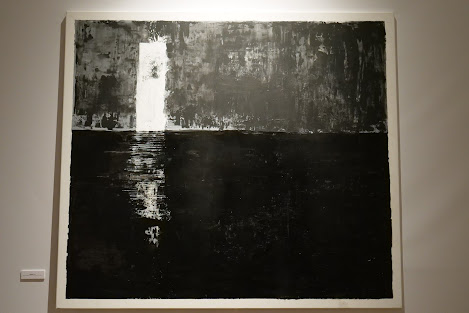8/04/2025
An appalling nightmare...
5/07/2025
3/26/2025
Writing on the wall
9/14/2024
Coppola and real life
Just finished reading a wonderful "The Path to Paradise. A Francis Ford Coppola Story" by Sam Wasson. It's a fantastic book.
At the end of it the author acknowledges the openness and support he got from Coppola. They must have hit it off from the start, I guess. The character of FFC that emerges from the book is fascinating: always curious, always passionate, taking risks, sensitive and mad at times.
Among many intriguing isights there is one that I've been thinking about for the last few days. It is an account of what FCC said to Sam Wasson about the creating process. It was the thought that a director controls the elements of his creation the same way the painter controls the brushstrokes on the canvas or a writer controls the words on the page. In the case of film the director he controls "the real life". Another words to produce a strong, significant film whatever happens in front of the camera or later on the screen has to be a part of real life. He spoke about it while discussing "One from The Heart" but I thought about "Apocalypse Now" which is so real, so personal, so dramatic that it fits the above deception beautifully.
It is also an admonishment to those who try to put things in front of camera that are not filtered through the "real life" urgency.
9/29/2023
Connections
I finally saw "Human Nature" the first collaboration between Charlie Kaufman and Michael Gondry. So wonderful that even though the reception of that film was generally bad they continued into "The Eternal Spotless of of the Spotless Mind."
In the "Human Nature" there is one wonderful moment (among many) where the ape "goes ape" about the way we relate to the world. (Wittgenstein anyone?)
Then the ape asks about the meaning of simultanagnosia".
Natan, the brainy characters responds:
Elegantly said. Google explains it in the following way:
“Simultanagnosia is the inability to perceive more than one object at a time. Patients are capable of identifying individual elements of a complex scene but have great difficulty in understanding what is occurring overall within the scene (i.e., “cannot see the forest for the trees”)”
This idea chimes with my recent state of mind: It so happens that I'm re-reading now “The Books of Jacob”, by Olga Tokarczuk. It contains the following passage:
“Ascher Rubin considers most of the people stupid and it’s that stupidity that brings sadness to the world. It’s neither a sin nor a virtue with which a man is born, but simply a bad way of seeing the world, erroneous understanding of what eyes see. As a result people see each thing separately, each disconnected from the rest. True wisdom is an art of connecting everything with everything, because then the true essence emerges.” (translation PK)
The question of the narrative technique is how to implement this approach in storytelling. Adding elements to emphasise the connection? Remove elements to penetrate the connections more within a singular? Mix the two approaches? Use other tools to seek unity of everything?
8/29/2023
Polanski and his Magic
When I wasn’t here I have been hanging out at the YouTube channel “Thinking Camera”. The most recent entry there is about one of my favourites: “Chinatown”.
Let me add a few things to the content there:
I dared a risky thesis on a supposedly rhythmical arrangement of geometric values in the flow of composition there. I haven’t checked/examined its validity yet but since then came across a wonderful podcast/conversation between Robert Town and David Fincher about the film. There they discuss the rhythmical occurrences of the double elements in the film: glasses, car tail lights, eyes (you got a spot in your eye), cigarettes, even nostrils etc. They say that Polanski probably wasn’t conscious of those rhythms, yet they are there. So it’s possible that my statement wasn’t entirely bs. If anyone out there is game - checking the rhythms of compositions in Chinatown is a project to jump start. We could do it together.
My short remark about the Gittes character is shallow and one sided. In their conversation Fincher and Town examine Gittes with his ambitions, limitations and values. What emerges is a full scope character. Needless to say I regret a fast wording to describe a complex being.
The origin of the magic of the film is an interesting issue. Polanski says he wasn’t really thinking while making the film that it was something special. It was just a job, he says. On the other side of the spectrum is Robert Evans - the force behind the production - who says that magic happens when you’re a bit irreverent, almost as if a certain modicum of irreverence is a must for magic to happen.
Unrelated to Chinatown: Polanski’s conversation with Charlie Rose is fabulous. You can see there how a person with a massive intelligence reacts with respect to a journalist whom he considers solid and worthy to be treated seriously. I suspect that some of the questions that Rose asks if presented by somebody else would trigger quite different responses from the director.
11/14/2022
My way to Bresson (via Skolimowski and his "EO")
I approached “EO” with two preconceived notions. The first was an awe of Skolimowski as a painter and a filmmaker. In this order. A few years ago I saw the exhibit of his mostly large format works from which comes the image above. I am also a big fan of his early films, a wonderful burst of cinematic energy.
The second notion comes from many failed attempts to watch Bresson’s “Au Hasard Balthazar.” Contrary to many opinions by great masters of cinema that movie have kept me cold. I don’t even think I managed to watch more than a half of it. I tried several times. Something is clearly not right with my perception of this classic.
Anyway, here comes “EO”. I go to a movie house and I am floored, moved. Even shocked at times. Great film. It beams with freshness, audacity and smarts. I felt I was dealing with a painter who communicates feelings and sensitivities rather than anecdote. The feelings were of a non-human entity, of a donkey. Or was it really a donkey? Was it something we don’t know much about and can only guess its ways of perception? But wait, are we sure of our own ways of perception? Do we really know what we truly experience and sense once we put aside a heavy armour of social pressures, cultural laziness and our own physiological and mental limitations? Watching “EO”, I felt I was exposed to a way of perceiving the world different from mine. Upon second thought: how different it was? Are we really in full emotional control of the events around us? Do we really understand what’s going on? Is our grasp on our existence coherent? Are we in control? Or perhaps we are just as lost and confused as the donkey in “EO”? Perhaps the unclear ways in which the story unfolds corresponds really to our own paths in life, which we desperately try to turn into a coherent narrative, in vain, most of the time.
The “how to” manuals in narrative storytelling present two ways of telling a story: though anecdote or through character. A classic Hollywood formula in which action is the character in its best blends the two approaches, but there is a yet another possibility and that is ….sensitivity.
This is what Skolimowski does in “EO”.
Some sneered at the “EO” as chaotic, unfocused and shallow in its critique of modern life. They attacked the film on three points: that it’s about “everything” and is “all over”, that its callings for love of nature and animals are banal and that it’s all done with too much “pathos”.
Perhaps those critics look in cinema for stability and comfort, for pure entertainment. For the familiar storytelling since the Aristotle, that prevails and shapes our travels in the universe, the familiar which makes our existence bearable but is still not reflective of how things are. In reality everything is a mystery beyond our comprehension. Yet, we endure, we yearn, love and withstand the blows of fate using model storytellings as blindfolds.
Perhaps our nervous system is really more like the narrator in “EO”, who just feels, is surprised, elated, shocked, amazed.
If one sneers at “the message” of EO, I would just quote an old Hollywood wisdom attributed at times to Frank Capra or Samuel Goldwin: “If you want to send a message, try Western Union.” Or put it differently if you seek a message in a film you’re missing the point. Not that there are no messages there but that’s not why film are what they are.
Then there is an accusation of “pathos”. Well how intense is your (inner) life? What’s the amplitude of a soul that is trapped, confused, misunderstood? How would you present the inner life of something (somebody) marked for death? Bless your heart if you don’t scream once you wake up and realise how tragic (your, his, its) existence is.
Which brings me to Robert Bresson. After the encounter with the film that is a take on “Au Hazard Balthazar” ("Balthazar, at random”) I attempted to watch the original again. No go. Frustrated I reached out for “Pickpocket” and voila! Suddenly I got his strive to bypass the stiffness of storytelling and to get to the inner life of a character. Then came “L’Argent“ (“Money”), which again presented itself as a masterpiece in exploring the internal while making statements about society. All done with restrain, ellipses, unorthodox rhythms of shots. The narrator was telling the story of feelings while engaging my mind in a precise and abstract manner. That’s a very difficult thing to pull off.
Having watched those two films of Robert Bresson I realised that Skolimowski is not only re-telling a story of a cute and lost in the world donkey. He’s also riffing on the bressonian approach to the inner life of a character. He does it his way of course. Then there is the episode with Isabelle Huppert - seemed weird at first but then it hit me that it was a very bressonian detour. Which wasn’t a detour at all. The donkey was there. Additionally this episode somehow feels close to what Bresson did in ”L’Argent”.
Bresson said that the cinematographer has great potential but very few practitioners. He did this film at the age of 83. Youthful Skolimowski (when filming “EO”, also 83) with all his energy, raw nerve and audacity he is perhaps just entering his next creative phase. Perhaps through his courage and abilities the medium may open up in its sensitivity and narrative freshness. Which is what Robert Bresson envisioned.
I am still to watch "Au Hazard Balthazar".









